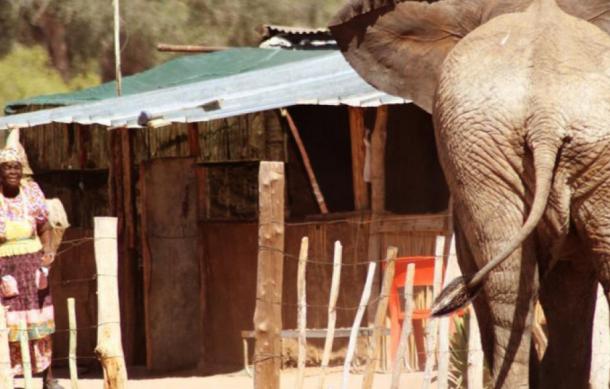
There is a need to develop innovative ways to address the issues of human-wildlife conflict (HWC).
These were the sentiments of Zambezi Region Governor, Alufea Sampofu, during an interview with nbc News at the National Human-Wildlife Conflict.
Zambezi is one of the regions where residents are terrorised by wild animals that destroy their crop fields.
Sampofu is also concerned about the compensation paid to victims of HWC, saying it leaves much to be desired.
"In the past, the ministry compensated cattle destroyed or killed; now it's N$3000 per cow, but that is not enough for a farmer today; there is no cow for N$3000. We have to look into how farmers can be properly compensated. Also, in crop fields where crops are destroyed by elephants, buffalos, and hippos, they pay N$250 per half a hectare and N$1000 for a whole field. That is still not enough. For a farmer to plough by tractor, it costs N$1000, 10 kg of seeds are N$500, and weeding one hector costs N$1000, so you are going up to N$2500 just for a hector now. When elephants destroy crops, you get N$1000. That's why we are saying the ministry should look at this and do research on it to benchmark with other countries to see how their compensation system is so that we can assist our farmers."
The Chief Executive Officer of the Community Conservation Fund of Namibia (CCFN) recommended that more stakeholders come on board to help the government address the human-wildlife conflict.
"This is a national problem, and we all need to work together in terms of resources. I also feel like the ministry's budget is not sufficient; most of it goes to operational costs. We understand the budget limitations, but this being a national problem just like any other, my recommendation is that the ministry, through Cabinet, considers making a separate allocation budget for this issue in addition to the ministry's budget."
The CCFN is currently working on the Poverty-Oriented Support for Community Conservation in Namibia project.
The project, which runs from 2020 to 2024, aims to address human-wildlife conflict.
"As CCFN, we are currently in the middle of an €8 million project on human-wildlife mitigation in conservancies. That money is meant to cover about 43 conservancies; we have 86, and in those 43, we will probably cover 20% of the identified needs. Last year, we did HWC action planning, where the communities came out and said what they wanted to do. Compared to the funding we have, there is a gap."





